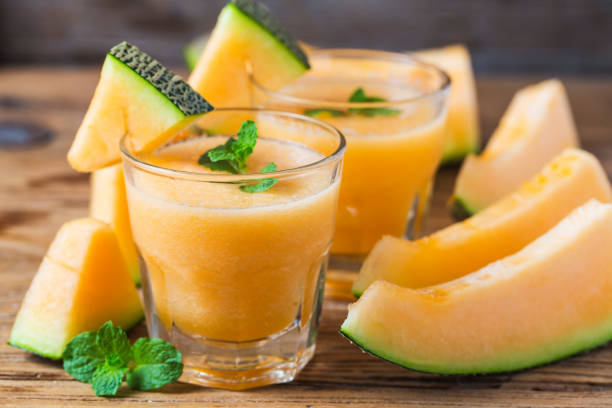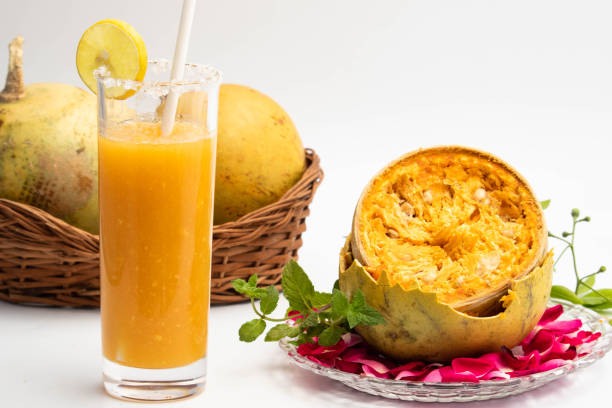Mango, often hailed as the “king of fruits,” is not only delicious but also packed with essential nutrients that offer numerous health benefits. From aiding in weight loss to promoting skin health, mangoes have long been cherished for their diverse advantages. In this comprehensive guide, we’ll delve into the various benefits of mango consumption, including its positive effects on diabetes, skin health, and weight management. Explore the many benefits of eating mango and discover how this tropical fruit can enhance your overall well-being.
Introduction to Mango
Mango, scientifically known as Mangifera indica, is a tropical fruit native to South Asia but now cultivated in various parts of the world. It belongs to the Anacardiaceae family and is loved globally for its sweet taste and juicy texture. Mangoes come in different varieties, each with its unique flavor, shape, and color. Beyond its delicious taste, mangoes offer a multitude of health benefits, making them a popular choice for health-conscious individuals. Explore the benefits of eating mango and enjoy this nutritious fruit as part of your daily diet.
Nutritional Value of Mango
Mangoes are not only delightful but also incredibly nutritious. They are rich in essential vitamins and minerals, including vitamin C, vitamin A, vitamin E, potassium, and fiber. One cup of sliced mango provides approximately 100 calories and meets a significant portion of the daily recommended intake of these nutrients.
Health Benefits of Eating Mango
Benefits of Mango for Diabetes
Contrary to popular belief, mangoes can be beneficial for individuals with diabetes when consumed in moderation. Despite their natural sweetness, mangoes have a low glycemic index, meaning they cause a gradual rise in blood sugar levels. Moreover, the fiber content in mangoes helps regulate blood sugar levels and improves insulin sensitivity.
Rich Source of Vitamins and Minerals
Mangoes are a powerhouse of vitamins and minerals that are vital for maintaining overall health. Vitamin C, present abundantly in mangoes, boosts the immune system, promotes collagen production, and helps in wound healing. Additionally, vitamin A supports eye health, while vitamin E acts as an antioxidant, protecting cells from damage.
Boosts Immune System
The high vitamin C content in mangoes strengthens the immune system, helping the body fight against infections and illnesses. Regular consumption of mangoes can reduce the risk of common colds, flu, and other respiratory infections.
Improves Digestion
Mangoes contain digestive enzymes like amylases, which help break down carbohydrates, and proteases, which aid in protein digestion. Moreover, the fiber content in mangoes promotes regular bowel movements, prevents constipation, and maintains a healthy digestive system.
Promotes Eye Health
The beta-carotene in mangoes is converted into vitamin A in the body, which is essential for maintaining good vision and preventing age-related macular degeneration and night blindness. Including mangoes in your diet can contribute to better eye health.
Mango Fruit Weight Loss
Despite being sweet and delicious, mangoes can be beneficial for weight management. They are low in calories and fat but high in fiber, which promotes a feeling of fullness and reduces overall calorie intake. Incorporating mangoes into a balanced diet can aid in weight loss or weight maintenance.
Antioxidant Properties
Mangoes are rich in antioxidants like quercetin, isoquercitrin, astragalin, and fisetin. These compounds help neutralize free radicals in the body, reducing oxidative stress and lowering the risk of chronic diseases such as heart disease, diabetes, and cancer.
Potential Cancer Prevention
The phytochemicals and antioxidants present in mangoes have been studied for their potential cancer-preventive properties. Research suggests that regular consumption of mangoes may help inhibit the growth of cancer cells and reduce the risk of certain types of cancer, including breast, colon, and prostate cancer.
Heart Health
The potassium and magnesium in mangoes help maintain a healthy heart by regulating blood pressure, reducing the risk of hypertension, stroke, and heart disease. Furthermore, the fiber content in mangoes helps lower cholesterol levels, promoting cardiovascular health.
Skin and Hair Benefits
Mangoes are renowned for their skin-loving properties, thanks to their high vitamin A and C content. These vitamins promote collagen production, resulting in firmer, more youthful-looking skin. Additionally, antioxidants found in mangoes protect the skin from damage caused by free radicals, preventing premature aging and maintaining a radiant complexion. Additionally, applying mango pulp or oil to the hair can nourish the scalp, strengthen hair follicles, and add shine to the hair.
Best Time to Eat Mango
While mangoes can be enjoyed at any time of the day, consuming them in the morning or as a mid-morning snack is optimal. Eating mangoes on an empty stomach allows for better absorption of nutrients and may help boost metabolism. However, moderation is key, especially for individuals with diabetes or those watching their calorie intake.
Benefits of Raw Mango
Raw mango, often used in savory dishes and pickles, offers its own set of unique benefits. Rich in vitamin C and antioxidants, raw mango aids in boosting immunity and fighting inflammation. Additionally, its tangy flavor adds a refreshing twist to culinary creations, making it a versatile ingredient in various cuisines.
Incorporating Mango Into Your Diet
From smoothies and salads to grilled skewers and desserts, there are countless ways to incorporate mango into your daily meals. Try adding diced mango to yogurt for a refreshing snack or blending it into a tropical smoothie with coconut water and pineapple. For a savory twist, toss mango chunks into salsa or use them to top grilled fish or chicken.
Precautions and Considerations
While mangoes offer numerous health benefits, some individuals may experience allergic reactions or digestive issues. If you have a known allergy to mangoes or latex, exercise caution when consuming them. Additionally, individuals with certain medical conditions, such as kidney problems, may need to limit their intake of mangoes due to their potassium content.

Mango Juice Recipe
Mango juice is a refreshing and delicious way to enjoy the tropical flavor of ripe mangoes. With just a few simple ingredients, you can whip up a batch of homemade mango juice that’s bursting with flavor. Here’s a quick and easy recipe to make your own mango juice at home:
Ingredients:
- 2 ripe mangoes
- 1-2 tablespoons of sugar (optional, depending on the sweetness of the mangoes)
- 1 cup of cold water
- Ice cubes (optional)
- Fresh mint leaves for garnish (optional)
Instructions:
- Prepare the Mangoes: Wash the mangoes thoroughly under running water. Peel the mangoes and cut the flesh away from the pit. Chop the mango flesh into chunks and discard the pit.
- Blend the Mangoes: Transfer the chopped mango chunks into a blender or food processor. If you prefer your juice to be sweeter, you can add a tablespoon or two of sugar at this stage. Blend the mangoes until smooth and creamy.
- Strain the Juice: To achieve a smoother consistency, you can strain the mango puree through a fine-mesh sieve or cheesecloth to remove any fibrous bits. This step is optional, depending on your preference.
- Add Water: Once the mango puree is smooth, transfer it to a pitcher or jug. Add about a cup of cold water to the mango puree and stir well to combine. Adjust the amount of water according to your desired consistency. If you like your juice thicker, you can add less water.
- Chill and Serve: If desired, you can chill the mango juice in the refrigerator for a couple of hours before serving. Alternatively, you can serve it immediately over ice cubes for a refreshing drink.
- Garnish and Enjoy: To add a touch of freshness, you can garnish the mango juice with fresh mint leaves before serving. Stir well and pour the mango juice into glasses. Serve cold and enjoy the tropical goodness of homemade mango juice!
This mango juice recipe is incredibly versatile, and you can customize it to suit your taste preferences. Feel free to adjust the sweetness level by adding more or less sugar, or add a splash of lime juice for a tangy twist. Cheers to a refreshing glass of homemade mango juice!
Conclusion
Mangoes offer a multitude of health benefits, ranging from improved digestion to enhanced skin health. Whether you’re looking to manage diabetes, lose weight, or simply indulge in a delicious treat, mangoes are a nutritious addition to any diet. By incorporating this flavorful fruit into your meals, you can reap the rewards of its nutritional goodness while tantalizing your taste buds. Enjoy the benefits of eating mango and elevate your overall well-being.
What are 5 health benefits of mangoes?
Mangoes offer a plethora of health benefits, including:
– Rich in Nutrients: Mangoes are packed with essential vitamins and minerals, including vitamin C, vitamin A, potassium, and fiber, which support overall health and well-being.
– Boosts Immunity: The high vitamin C content in mangoes helps strengthen the immune system, making you more resilient to illnesses and infections.
– Aids Digestion: Mangoes are rich in dietary fiber, which promotes healthy digestion and helps prevent constipation.
– Improves Skin Health: The vitamin A and antioxidants in mangoes promote collagen production, keeping the skin firm and youthful while protecting against oxidative damage.
– May Lower Cholesterol: Some studies suggest that the compounds found in mangoes may help lower LDL (bad) cholesterol levels, reducing the risk of heart disease.
What does mango do to your body?
Mangoes have several positive effects on the body:
Provides Essential Nutrients: Mangoes are rich in vitamins, minerals, and antioxidants that are essential for overall health and proper functioning of the body.
Hydrates the Body: Mangoes have a high water content, helping to keep the body hydrated, especially during hot weather or after physical activity.
Supports Digestive Health: The fiber in mangoes aids digestion by promoting regular bowel movements and preventing constipation.
Boosts Immunity: The vitamin C in mangoes strengthens the immune system, helping the body fight off infections and illnesses.
Promotes Healthy Skin: The vitamin A and antioxidants in mangoes contribute to healthy, glowing skin by promoting collagen production and protecting against free radical damage.
Is it good to eat one mango every day?
Eating one mango a day can be beneficial for most people as part of a balanced diet. However, moderation is key. While mangoes are nutritious, they are also relatively high in natural sugars, so consuming them in excess may contribute to weight gain or blood sugar spikes, especially for individuals with diabetes or those trying to manage their weight.
It’s essential to consider your overall calorie intake and dietary needs when incorporating mangoes into your daily diet. Consulting with a healthcare professional or registered dietitian can provide personalized guidance based on individual health goals and nutritional requirements.
What is the best time to eat mango?
The best time to eat mango is when it is ripe and at its peak flavor. Mangoes are typically in season during the summer months, making them especially refreshing during hot weather. Enjoying mangoes as a snack, in smoothies, salads, or desserts after meals can be a delightful way to incorporate them into your diet.
Additionally, mangoes can be enjoyed any time of day, whether as part of breakfast, lunch, dinner, or as a midday snack. Choose mangoes that yield slightly to gentle pressure and have a fruity aroma at the stem end for the best flavor and texture.
How healthy are mangoes?
Mangoes are incredibly healthy and nutritious fruits. They are rich in essential vitamins, minerals, and antioxidants that support overall health and well-being. The vitamin C content in mangoes boosts immunity, while the fiber aids digestion and promotes satiety. Additionally, the vitamin A and antioxidants contribute to healthy skin and protect against oxidative damage.
Including mangoes in your diet can offer numerous health benefits, such as improved digestion, enhanced immunity, and better skin health. However, like any food, moderation is key to reap the maximum benefits without overloading on calories or sugars. Incorporate mangoes into a balanced diet alongside other fruits, vegetables, whole grains, and lean proteins for optimal health.







